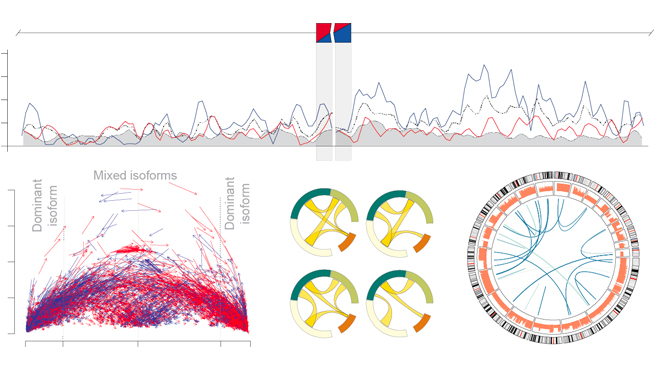Matteo Cereda
Matteo Cereda graduated in Biomedical Engineering from the Polytechnic University of Milan in 2005 and began his research career as a junior fellow at the IRCCS E. Medea Institute (Bosisio Parini, IT), where he modeled the impact of genetic variation on alternative splicing. He obtained a Ph.D. in Complex Systems in Genomics from the University of Turin in 2010, during which he trained in Jernej Ule’s group at the MRC Laboratory of Molecular Biology (Cambridge, UK), focusing on protein–RNA interactions.
Following his doctoral studies, Matteo pursued postdoctoral research at the European Institute of Oncology and later at King’s College London in Francesca Ciccarelli’s group. There, he investigated tumor evolution, heterogeneity, and drug resistance, contributing to large-scale cancer genome sequencing programs.
In 2017, he received his first AIRC grant to study the deregulation of alternative splicing in cancer and established the Cancer Genomics and Bioinformatics Laboratory at the Italian Institute for Genomic Medicine, within the IRCCS Candiolo Cancer Research Center (Candiolo, IT). Since 2021, he has been Associate Professor at the Department of Oncology and Hemato-Oncology at the University of Milan.
Over the course of his career, Matteo has consolidated advanced computational tools and molecular strategies to systematically investigate cancer biology, with a strong focus on tumor heterogeneity. By integrating multi-omics data with mathematical approaches, he has revealed how genetics, plasticity, and immune crosstalk drive cancer progression and therapy resistance. He introduced a “less is more” paradigm in transcriptomic analysis, which enhanced the interpretation of large-scale heterogeneous datasets. Most notably, he demonstrated that epi-transcriptional regulation of RNA splicing drives prostate cancer progression, one of the defining achievements of his career.
Since October 2025, Matteo leads the RNA regulatory network in translational oncology laboratory. His interdisciplinary research bridges computational and molecular biology with translational oncology. his lab is focused on dissecting RNA production through an engineering-driven perspective, integrating advanced analytical frameworks, including artificial intelligence, with high-resolution molecular technologies such as large-scale third-generation sequencing. His overarching goal is to deepen the mechanistic understanding of RNA regulatory networks in heterogeneous contexts and expand the therapeutic potential of RNA-based interventions in clinical settings.
